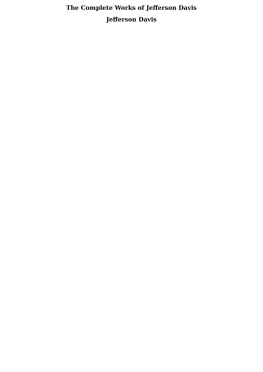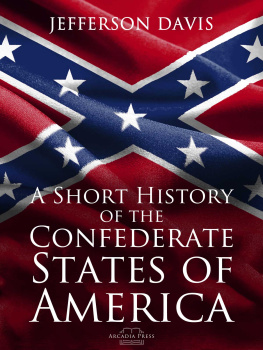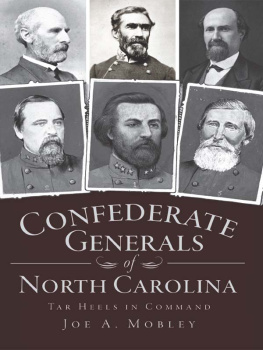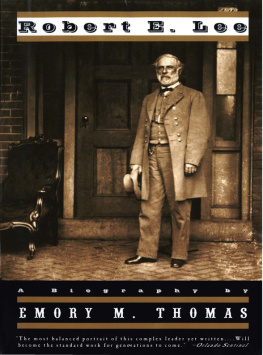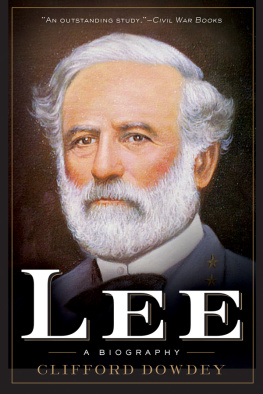1992 The University of North Carolina Press
All rights reserved
Manufactured in the
United States of America
The paper in this book meets the guidelines for permanence and durability of the Committee on Production Guidelines for Book Longevity of the Council on Library Resources.
09 08 07 06 05 65432
Library of Congress Cataloging-in-Publication Data
Parrish, T. Michael.
Richard Taylor, soldier prince of Dixie / by T. Michael
Parrish.
p. cm.
Includes bibliographical references (p.) and index. ISBN 0-8078-2032-6 (cloth : alk. paper) 1.
1. Taylor, Richard, 18261879. 2. GeneralsConfederate States of AmericaBiography. 3. Confederate States of America. ArmyBiography. 4. LouisianaHistoryCivil War, 18611865. I. Title.
E467.1.T24P37 1992
973.7092dc2o [B] 91-46467
CIP
FRONTISPIECE
Richard Taylor immediately after the Civil War. Photograph by Mathew Brady (authors collection).
THIS BOOK WAS DIGITALLY PRINTED.
FOR JULIBETH
CONTENTS
MAPS
1. Shenandoah Valley Region, 1862
2. Battle of Winchester, May 25, 1862
3. Battle of Port Republic, June 9, 1862
4. Area of the Seven Days, near Richmond, June-July 1862
5. New Orleans, Lafourche, and Teche Regions
6. Red River Valley
7. Battle of Mansfield, April 8, 1864
8. Battle of Pleasant Hill, April 9, 1864
ILLUSTRATIONS
Major General Zachary Taylor in 1848,
President Zachary Taylor in 1849,
Richard Taylor, sugar planter, ca. 1860,
Frederick Law Olmsted,
Governor Alexander Mouton,
William L. Yancey,
Alexander H. Stephens,
Braxton Bragg,
Jefferson Davis,
Richard S. Ewell,
Stonewall Jackson,
Nathaniel P. Banks, proud political general,
A Glimpse of Stonewall Jackson,
David French Boyd,
Robert E. Lee,
Major General Richard Taylor,
George W. Randolph,
Benjamin F. Butler,
Edmund Kirby Smith,
Henry H. Sibley,
Thomas Green,
Taylors five-year-old son Zack,
Taylors daughter Elizabeth,
Taylors daughter Myrthe Bianca,
John G. Walker,
Battle of Millikens Bend, Louisiana,
Richard Taylors dressing kit,
Jean Jacques Alfred Alexander Mouton,
David D. Porter,
Admiral Porters fleet at Alexandria,
Camille Armand Jules Marie de Polignac,
Nathaniel P. Banks in all his martial splendor,
Monument to Taylors victory at Mansfield,
Thomas J. Churchill,
Tom Greens attack on Porters fleet at Blairs Landing,
Hamilton P. Bee,
Porters massive ironclads passing through Baileys dam,
A. J. Smith,
William T Sherman,
Nathan Bedford Forrest,
Dabney H. Maury,
John Bell Hood,
Pierre Gustave Toutant Beauregard,
Edward R. S. Canby,
Richard Taylors Colt pistol,
Samuel Latham Mitchell Barlow,
President Andrew Johnson,
Thaddeus Stevens,
Charles Sumner,
Richard Taylor immediately after the war,
Henry Clay Warmoth,
President Ulysses S. Grant,
Jefferson Davis, ca. 1875,
Richard Taylor, ca. 1875,
Samuel J. Tilden,
Henry Brooks Adams,
Taylor family crypt,
ACKNOWLEDGMENTS
In completing this study I owe a primary debt of gratitude to Norman D. Brown, my dissertation supervisor in the history department of the University of Texas, and to the members of the dissertation committee: Thomas W. Cutrer, George B. Forgie, Shearer Davis Bowman, and Don E. Carleton. Their scholarly instruction, hard work, and patient friendship proved invaluable and personally rewarding. Thanks go also to other members of the history department: Barnes F. Lathrop, George C. Wright, Richard Graham, Brian Levack, Lewis L. Gould, Howard Miller, and Mary Helen Quinn, graduate secretary.
Vital encouragement and crucial suggestions came from Gary W. Gallagher, Robert K. Krick, Charles P. Roland, James I. Robertson, Jr., Stephen Rowe, Terrence Winschel, Brandon Beck, Donald Frazier, Robert Miller, and T. E. Swenson, all of whom read the manuscript in full or in part, offering numerous criticisms and corrections.
Other friends and colleagues who provided important source materials, guidance, and moral support are Edward M. Boagni, Maury A. Bromsen, the late Jack Mcllhenny, Gary Hendershott, Lawrence T. Jones, Charles V. Peery, the late Richard B. Harwell, Robert M. Willingham, Jr., Allan Purcell, Stephen L. Hardin, Jerry Thompson, Robert J. Younger, Merlin Sumner, Robert Judice, James Mundie, Jim Synnott, Bob Lurate, the late K. Jack Bauer, John Pannick, Jim Hayes, Charles Royster, Terry L.Jones, Frank Vandiver, Emily Cutrer, Eileen Gallagher, Thomas Schott, Stuart Goldman, Terry Waxham, O. Scott Petty, Evans Casso, Mary Gorman, Lucius Dabney, Harris D. Riley, Jr., Stanley Butcher, Joseph Parks, Frank Leavell, Stanley Campbell, the late Hugh Davis, Robert Reid, Robert Norris, Ken McElroy, Kenneth Kesselus, Ken Huddleston, Ron Riches, Dan Weinberg, Tom Munnerlyn, Ross Shipman, John Powers, Edith Williams, Fred White, Jr., Robert and Christine Liska, Ray and Carolyn Walton, Bill Walton, Michael Heaston, Michael and Gail Ginsberg, Elaine Brockman, Ben and Rozetta Pingenot, Bill Reese, Terry and Laura Halladay, Dorothy Sloan, and Michael Vinson.
The late John Jenkins made the Jenkins Rare Book Company a workplace that always encouraged a productive combination of business and scholarship. His legacy was sustained ably by Maureen Jenkins, along with the Jenkins staff: Diana Japko, Leonard Lantz, and Mark Evans. Computer consultant John Fehr also accomplished timely transformations that streamlined publication.
The professional staffs of several research institutions responded quickly and efficiently to my requests: George Miles (Beinecke Library, Yale University), James Gilreath, John Sellers, and James Hutson (Library of Congress), Michael Musick (National Archives), Katherine Adams and Ralph Elder (Barker Texas History Center, University of Texas), Kent Keeth and Michael Toon (Baylor University), Kenneth Urquhart, Florence Jumonville, Alfred Lemmon, Susan Cole, Katherine Kahn, Jan White Brantley, and Pat McWhorter (Historic New Orleans Collection), Wilbur Meneray and Sylvia Metzinger (Tulane University), Nancy Parker Booth (Rice University), Lynda Crist (Papers of Jefferson Davis), Patricia Clark (Papers of Andrew Johnson), the late Harold Simpson (Hill College), Arthur Bergeron (Louisiana State Parks Department), the late Stone Miller, Gisela Lozada, and Robert Martin (Louisiana State University), Joseph Castle, Claire Brown, and Bert Harter (Louisiana State Museum), Collin Hamer (New Orleans Public Library), Richard Shrader and Carolyn Wallace (Southern Historical Collection, University of North Carolina), Robert Byrd and Samuel Hammond (Perkins Library, Duke University), Alan Jutzi (Huntington Library), Dorothy Rush (The Filson Club Library), Madel Morgan (Mississippi Department of Archives and History), Frances McClure and Helen Ball (Miami University of Ohio), Richard Sommers (U.S. Army Military Institute), Edward Campbell (Museum of the Confederacy), Mary Willey (Knox College), Mary Ceibert (University of Illinois, Urbana-Champaign), Anastacio Teodoro and Richard Salvato (New York Public Library).
Matthew Hodgson and the staff of the University of North Carolina Press have served as both patient motivators and expert guides in seeing the dissertation pushed through to completion for final publication.


